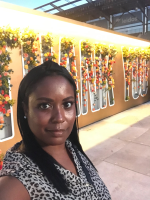Tom's Midday Newsmaker guest today is Baltimore City Police Commissioner Michael Harrison.
He’s been on the job a little more than four years, overseeing the implementation of a federal consent decree, trying to change the culture of the department, and fix the fraught relationship between the police and the majority African American community in our city.
There might be a perception that crime in the city has not diminished this year, or in recent years. In 2022, the number of homicides did, indeed top 300 for the 8th straight year. Three hundred and thirty-two people lost their lives violently then. But the overall trend in the rate of homicides and nonfatal shootings is headed in the right direction.
Mayor Brandon Scott delivered his third State of the City address earlier this week, and in his speech, he discussed efforts to turn the tide of violence in our city.
Part of that tide, the mayor said, is caused by the sheer number of weapons that are available. And he pointed to signs that the city's Group Violence Reduction Strategy, which involves violence interruption organizations as well as police and other agencies, is working.
But like cities across the country, Baltimore has experienced a heartbreaking uptick in violence against children and teenagers.
The CDC reports that gun violence is now the leading cause of death for children in the United States. In 2021, firearms were responsible for 19% of childhood deaths nationwide.
Here in Baltimore, in the first four months of this year, 39 young people between the ages of 13 and 18 have been shot. Eleven have died.
Mayor Scott has promised to re-instate nighttime curfews for children and youth under the age of 17, starting this Memorial Day (May 29).
If police are tasked with enforcing curfews, how will that affect their efforts to reduce violent crime?
Baltimore City Police Commissioner Michael Harrison joins Tom in Studio A…








